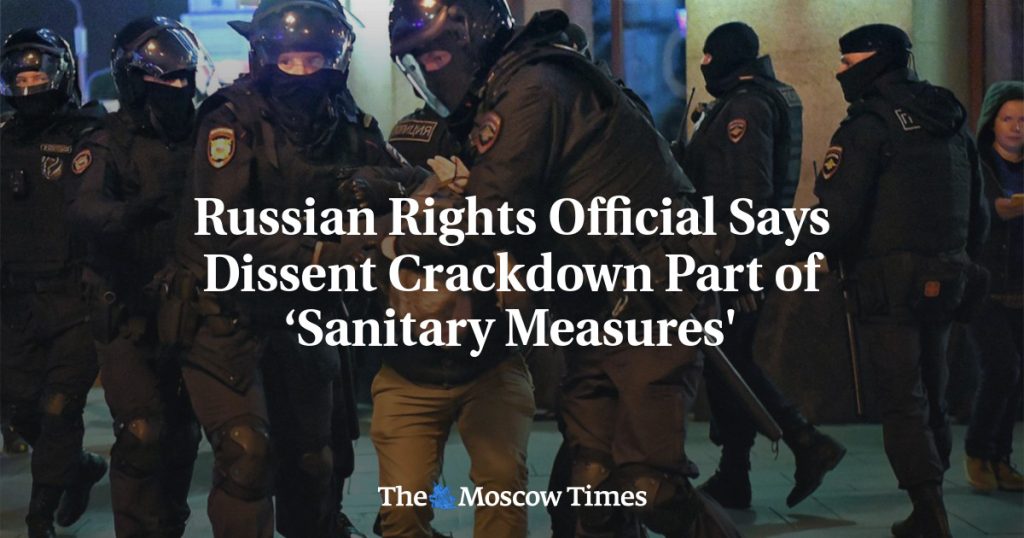The head of Russia’s human rights council, Valery Fadeyev, defended Moscow’s crackdown on dissent as necessary “sanitary measures” during the country’s conflict in Ukraine. He denied that the government’s actions amounted to political repression, despite widespread bans on criticism of the war and severe consequences for those who speak out against it. Notably, all of President Putin’s opponents are either in exile, prison, or deceased, highlighting the harsh consequences of dissent in Russia.
Fadeyev acknowledged that the current situation in Russia is challenging due to the ongoing conflict with the West, referring to the restrictions placed on individuals who are seen as supporting the enemy. He argued that these limitations are necessary for national security and are not a form of repression but rather a form of self-protection. As a result, he stated that lobbying for amnesties for those affected by these restrictions is not a priority for the presidential council at this time.
Despite the denial of political repression, Russian officials have openly discussed the need for “cleansing” the country of individuals who oppose the Ukraine war. Putin himself has used this language, calling for the removal of “traitors” from society in 2022. This rhetoric, along with the government’s actions to silence dissenters, has raised concerns about the erosion of free speech and human rights in Russia, particularly during times of conflict.
The crackdown on dissent in Russia has led to a climate of fear and censorship, with individuals facing prison terms or fines for expressing opposition to the government’s actions in Ukraine. This has created a chilling effect on free speech and political dissent, as individuals risk severe consequences for speaking out against the government. The lack of opposition voices within Russia, with Putin’s opponents marginalized or silenced, further highlights the challenges faced by those seeking to advocate for human rights and civil liberties.
Fadeyev’s comments suggest a justification for the government’s repressive actions as necessary measures to protect national security during a time of conflict. By framing these restrictions as “sanitary measures” rather than political repression, the Russian government seeks to justify its crackdown on dissent while minimizing criticism from human rights advocates and the international community. However, the language of “cleansing” and the targeting of individuals who oppose the war raise concerns about the erosion of democratic norms and principles in Russia.
Overall, the situation in Russia reflects a broader trend of authoritarianism and repression of dissent in the country. The government’s actions to silence critics and limit free speech are part of a wider crackdown on human rights and civil liberties, particularly during times of conflict. As Putin’s grip on power tightens and opposition voices are marginalized, the challenges faced by those seeking to advocate for human rights in Russia continue to grow, highlighting the need for greater international scrutiny and solidarity with those facing repression.














